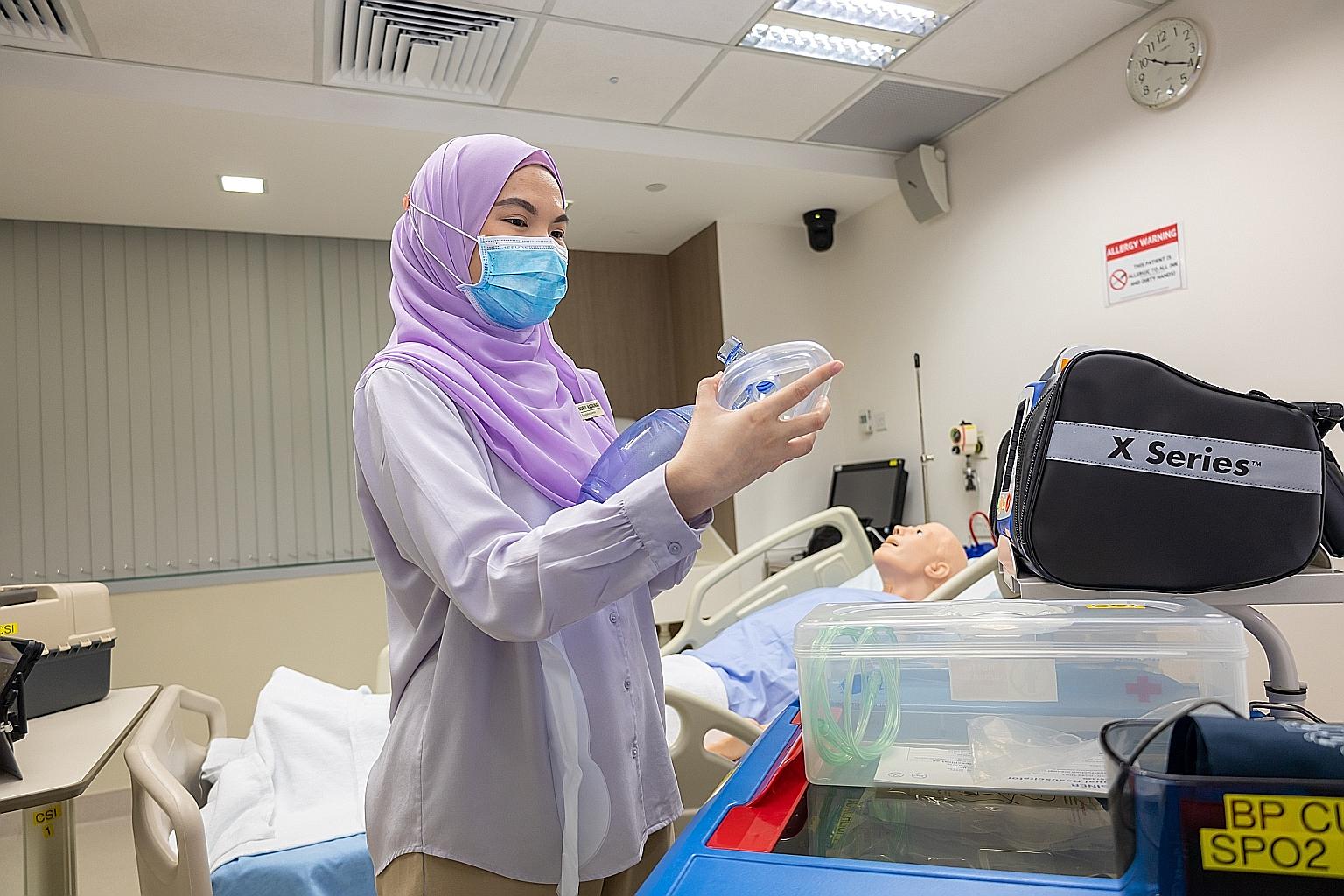S'pore health worker talks to grandparents from outside their flat to protect them from Covid-19
Sign up now: Get ST's newsletters delivered to your inbox

Ms Nurul Hadainah Muhamad Suhaimi checking a device intended for use in simulation training.
PHOTO: CHANGI GENERAL HOSPITAL
SINGAPORE - Ms Nurul Hadainah Muhamad Suhaimi, who works at Changi General Hospital (CGH), has not hugged her grandparents for more than a year.
Although the senior associate executive at CGH's Changi Simulation Institute is not in direct contact with Covid-19 patients, she worries that her maternal grandparents, who are both 85, will get infected with the coronavirus.
For the past year, whenever she has visited them, she has stood in the corridor outside their flat, talking to them through a closed gate.
Speaking to The Straits Times, she said: "When I bring them food, I also make sure to hang it at the gate instead of passing it to them directly. It is tough, but they are both very old and have serious health conditions like heart disease and hypertension.
"I don't want to risk (infecting them)... I don't want them to suffer."
Ms Nurul, 30, has been working at CGH for more than seven years. Since the pandemic hit last year, she has been taking precautions to protect those around her.
After returning home from work, the first thing she does is head straight for the shower.
Ms Nurul, who lives with her husband, brother and parents, said: "It has become a habit. When I get home, I make sure I don't hug anyone before taking a shower.
"My laundry load is separate from my family's. I even wash my hands before touching a light switch."
Her mother is 61 and her father is 65, and even though her entire family is fully vaccinated, the thought of them contracting Covid-19 is always at the back of her mind.
But while being a front-line worker is not easy, she finds her work fulfilling.
One of her major job scopes is preparing what is needed for training simulations for doctors and nurses before their deployment to Covid-19 wards.
This is usually done at the Changi Simulation Institute or in available intensive care or isolation rooms.
"This provides them with hands-on practice before actually tending to a Covid-19 patient," she said.
Ms Nurul helps with the preparation of equipment needed for the simulations, including mock drugs with labelled dosages and defibrillator machines.
Healthcare workers at CGH also undergo regular simulation training on the use of powered air-purifying respiratory (PAPR) protection - headgear they must wear when in contact with a Covid-19 patient.
Prior to the pandemic, contingency-planning training sessions would take place every three months. The team at the simulation institute now carries out such sessions every week.
Ms Nurul said: "If the team is faced with a Covid-19 patient who has just collapsed, they are required to don personal protective equipment and the PAPR gear, and quickly attend to the patient. Every second counts during resuscitation."
She said that the doctors' and nurses' reaction times and communication skills are assessed in training, along with how accurately and quickly they don the protective gear.
Though her workload has increased since the onset of the pandemic, Ms Nurul is taking it in her stride.
She said: "Even though I do not have direct contact with patients, I know I am preparing training sessions that eventually help them. I am proud to be a part of our battle against Covid-19."


